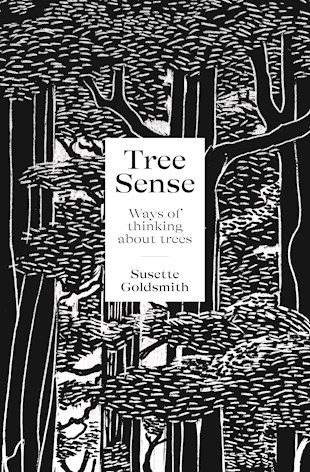author
Jacques Lawinski
post
- 15/02/2023
- No Comments
- Reviews
share
Tree Sense: Ways of thinking about trees, edited by Susette Goldsmith.
Massey University Press, 2021.
A compilation of ways in which we can think about, value, and explore the trees that form, and are themselves formed by our beautiful landscapes in Aotearoa New Zealand.

Goldsmith has put together an impressive collection of essays, stories, poetry, art, and literature from contemporary New Zealand writers and artists to understand our relationship with trees. The book is a wonderful compendium of different ways to think about, relate to, analyse, and value the trees that are in our backyards and neighbourhoods, but also the trees in our forests and protected lands.
Goldsmith tells the story of how New Zealand’s progress and development as a nation came at a cost: the destruction of a large part of New Zealand’s native plants and trees, the very things which enabled the landscape to be strong and maintain its structural integrity. This was done in favour of farmland, and because many trees were not, and still are not protected or considered valuable to human life and development. The dark side of development has not only been the loss of ecosystems precious to the country’s plants and animals, but also the slow erosion of the relationship with the natural world, that we still lack today.
A common theme in the book is the way in which trees can inspire us, and ways for us to look to trees for knowledge, behavioural conduct, and new ideas. “Think like a Mataī” is Colin D Meurk’s description of how trees could help us, and he concludes by recognising the need to think more like these strong native trees. Likewise, Kennedy Warne discusses the place of trees in whakapapa genealogical relations, which are important to tikanga Māori and the way in which Māori relate to the environment.
Glyn Church’s “The peculiar trees of Aotearoa” appealed particularly to me, but each reader will find something different which piques their interest and gently encourages them out of the house and onto the land. I didn’t realise just how unique the tree species native to New Zealand are, and, growing up among these trees, how the landscape has shaped and formed them just as much as they now shape the landscape.
Thoroughly recommended to anyone with an interest in trees and plants in New Zealand. It’s something that can be read cover to cover, but also by reading random chapters at times when we feel we need some inspiration from the trees, and a new way to look out of our windows and into the natural world.
Tree Sense is available at Paper Plus NZ here, or check out your local bookshop to see if they have it in stock or can order it for you.
It took more than 30 hours of research and writing to produce this article, which will always be open and free for everyone to read, without any advertising.
All our articles are freely accessible because we believe that everyone needs to be able to access to a source of coherent and easy to understand information on the ecological crisis. This challenge that confronts us all will only be properly addressed when we understand what the problems are and where they come from.
If you've learned something today, please consider donating, to help us produce more great articles and share this knowledge with a wider audience.
Why plurality.eco?
Our environment is more than a resource to be exploited. Human beings are not the ‘masters of nature,’ and cannot think they are managers of everything around them. Plurality is about finding a wealth of ideas to help us cope with the ecological crisis which we have to confront now, and in the coming decades. We all need to understand what is at stake, and create new ways of being in the world, new dreams for ourselves, that recognise this uncertain future.
Copyright © Plurality.eco 2023

